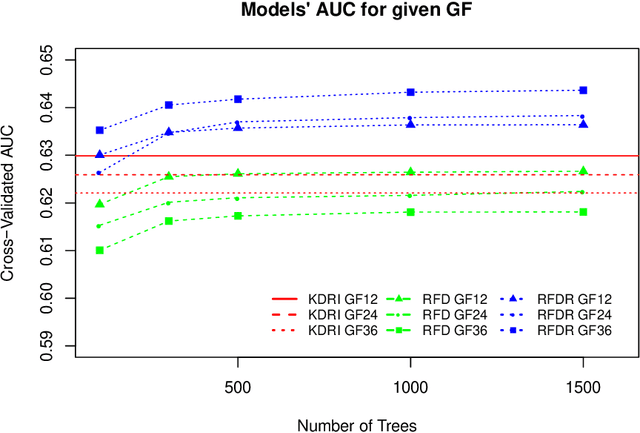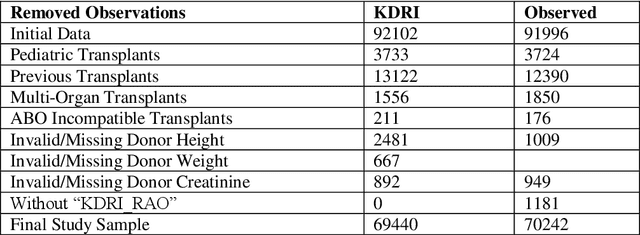A predictive model for kidney transplant graft survival using machine learning
Paper and Code
Dec 07, 2020



Kidney transplantation is the best treatment for end-stage renal failure patients. The predominant method used for kidney quality assessment is the Cox regression-based, kidney donor risk index. A machine learning method may provide improved prediction of transplant outcomes and help decision-making. A popular tree-based machine learning method, random forest, was trained and evaluated with the same data originally used to develop the risk index (70,242 observations from 1995-2005). The random forest successfully predicted an additional 2,148 transplants than the risk index with equal type II error rates of 10%. Predicted results were analyzed with follow-up survival outcomes up to 240 months after transplant using Kaplan-Meier analysis and confirmed that the random forest performed significantly better than the risk index (p<0.05). The random forest predicted significantly more successful and longer-surviving transplants than the risk index. Random forests and other machine learning models may improve transplant decisions.
 Add to Chrome
Add to Chrome Add to Firefox
Add to Firefox Add to Edge
Add to Edge